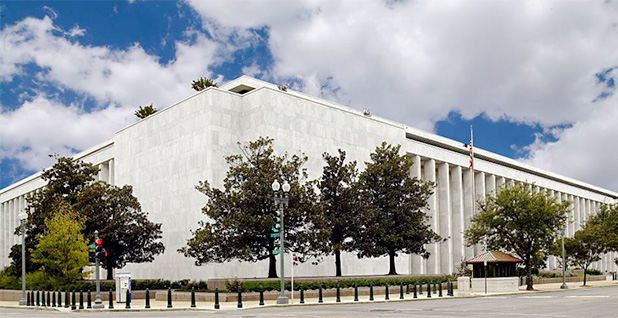|
What are CRS Reports?
The UNH Law IP Mall is pleased to offer the full text of intellectual property related publications of the Congressional Research Service (CRS), the "think tank" that works exclusively for Members and committees of the United States Congress. CRS is part of the legislative branch of the federal government. CRS, which is a department of the Library of Congress, works exclusively as a nonpartisan analytical, research, and reference arm for Congress. The CRS mission is to support an informed national legislature.
The Congress turns to CRS first when it is in need of legislative research, analysis, or information in addressing the issues of the Nation. The Congressional Research Service (CRS) is the public policy research arm of the U.S. Congress. CRS works exclusively and directly for all Members and committees of the Congress. Throughout the legislative process, CRS provides analysis, research, and information services that asset to be objective, nonpartisan, and confidential, thereby contributing to an informed national legislature.
History CRS was created by an Act of Congress; it has provided specialized research and information services to Congress since 1914. Originally named the Legislative Reference Service, it was renamed the Congressional Research Service by the Legislative Reorganization Act of 1970. The Act specified CRS responsibilities and mandated that CRS expand its analytical capabilities to meet the needs of Congress, especially service to its committees.
Availability of CRS Reports These reports since inception of CRS have not been available to the public. Open access and commercial services obtained selective reports through the offices of members of Congress.
March 2007: CRS Clamps Down on Public Distribution The availability of CRS Reports has become controversial in recent sessions of Congress. Currently, Members of Congress are permitted to provide constituents with copies of CRS reports and issue briefs upon request. Members of Congress have repeatedly introduced that would establish a centralized web site through which the public could access CRS reports and documents. "Providing citizens access to products they paid for opens up the federal government and educates the American public," Senator McCain said. "Congress should streamline the process through which the public obtains, copies of these highly regarded research documents as we enter the 21st century." Under legislative proposals, CRS documents would be posted on Library of Congress' website shortly after they are made available to members of Congress. Several commercial and noncommercial services have made attempts to fill the need for public access to this information, including:
as well as other NGO topical collection easily found by using a search engine.
A guerrilla group of open-records activists struck a major blow for sunshine in government Wednesday when it posted thousands of reports from the Congressional Research Service.
2018: Congressional Research Reports Will Now Be Made Public
Lawmakers who long protected their right to control reports from the Congressional Research Service now face a new era of full disclosure. Buried in the 2,232-page fiscal 2018 omnibus spending bill Congress approved and President Trump signed is a much-debated provision to require the Library of Congress, beginning 90 days after the bill’s enactment, to post all the lawmaker-requested reports on a central website.
The UNH IP Mall will continue to curate intellectual property related CRS Reports for a “one stop shop” for researchers. Despite the passage of the 2018 legislation, many members of the CRS Staff oppose open access to their work. Expand access to CRS reports could invite increased scrutiny of an agency that generally tries to avoid the spotlight and force the research service to grapple with how it handles controversial topics such as climate change, reports EE News:
|
|
NEW: 110 CRS reports added from 1943-2018 (see * below)
Select a CRS Report
We hope that you find this collection of reports useful and hope you share this with Professor Jon Cavicchi at:jon.cavicchi@law.unh.edu . |


